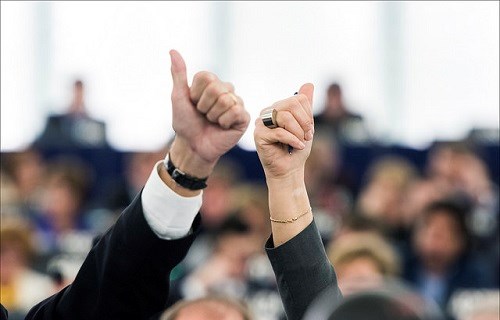New report shows lack of female representation in sports governance
While the female representation in the Rio Olympics 2016 is expected to reach 45 percent, the highest number ever, the female representation in the organisations running sport is lacking far behind, says a newly released report grading sports organisations on a scale from A to F reflecting the number of women in leadership roles.
The report is entitled ‘2016 International Sports Report Card on Women in Leadership Roles’ and is made by The Institute for Diversity and Ethics in Sport (TIDES), based at the University of Central Florida, USA, and the data is collected through the official websites of the international federations in March and of the International Olympic Committee (IOC) in July this year.
Overall, the report shows an underrepresentation of women in top positions across international sport and according to director of TIDES and main author of the report, Richard Lapchick, “the leadership in sport is an exclusive club of men”.
According to the report, women make up only 5.7% of International Federation presidents, 12.2% of the vice presidents and 13.1% of executive committee members.
Only six of the IF have a female representation in thier leadership of more than 25% with the International Skating Union in top by 45.5%, followed by the world governing bodies of hockey (37.5%), triathlon (37.5%), rowing (33.3%), gymnastics (28%) and tennis (26.5%).
‘Toothless’ Olympic calls for gender equality
The female representation among the 90 members (at the time of the data collection) of the IOC of which 22 are women is 24.4%.
With this percentage, the IOC is failing to live up to its own objectives regarding gender equality, says Lapchick.
“While the International Olympic Committee claims to support the promotion of women and girls at all levels of sport, women are still seriously underrepresented in the most influential positions in international sports,” Lapchick says in the report and calls the lack of women leaders in the international federations “astounding”. “The IOC’s calls for gender equality across sport have no teeth,” he adds.
More than 8,500 leadership positions have been examined in the report and the author hopes that the results will inspire international sports organisations to initiate actions that can make a change in the numbers.
“Hopefully the presentation of the overwhelming data in this Report Card about how exclusively male those International Federations, regional zone confederations and national member federations are will serve as a call to action for swift change so that women are better able to share the leadership in internationals port in the years ahead,” Lapchick concludes.
More information
Read the entire report:
Read more results from the report in the box on the right.






